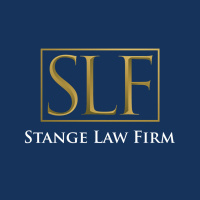Macksburg Divorce & Family Law Lawyer, Iowa
Mark Alan Simons
✓ VERIFIEDDivorce & Family Law, Business, Estate, Lawsuit & Dispute
Mark Simons is a highly skilled and experienced attorney based in West Des Moines, Iowa. With a reputation for excellence in the legal field, Mr. Simo... (more)
Stange Law Firm, PC
Divorce & Family Law, Child Custody, Child Support, Prenuptial Agreements, Paternity
Going through a divorce or family law matter can be an emotional time. You may feel betrayed, lost or overwhelmed. Having an attorney that can relate ... (more)
Joseph Gilbert Bertogli
✓ VERIFIEDCriminal, Divorce & Family Law
Joseph Bertogli is a Criminal Defense Lawyer proudly serving Des Moines, Iowa and the neighboring communities.
Frank A. Comito
Litigation, Estate Planning, Family Law, Criminal, Insurance
Status: In Good Standing
FREE CONSULTATION
CONTACTLawrence (Larry) F. Scalise
Adoption, Agribusiness, Alimony & Spousal Support, Animal Bite
Status: In Good Standing
FREE CONSULTATION
CONTACTFREE CONSULTATION
CONTACTMason J. Ouderkirk
Estate, Employment, Divorce & Family Law, Accident & Injury
Status: In Good Standing
FREE CONSULTATION
CONTACTRoxanne Barton Conlin
Mass Torts, Employment, Divorce & Family Law, Medical Malpractice, Accident & Injury
Status: In Good Standing




